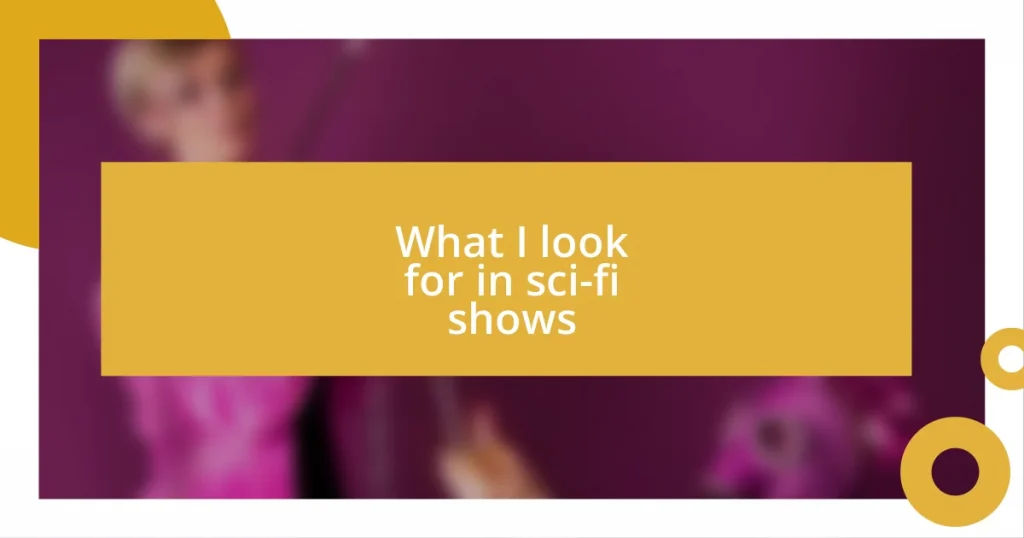Key takeaways:
- Ethical industry practices prioritize fairness, transparency, and sustainability, impacting both consumer trust and employee well-being.
- Common ethical challenges include deceptive advertising, unfair labor practices, and misleading sustainability claims that can erode consumer confidence.
- Future trends in ethical practices may involve advanced transparency through technology, B Corporations promoting social responsibility, and increased employee advocacy shaping corporate ethics.
Understanding ethical industry practices
Ethical industry practices revolve around the idea of doing business responsibly, with a strong emphasis on fairness, honesty, and sustainability. I often think about my shopping habits and how I feel when I support brands that align with these values. It’s an empowering feeling, knowing that my choices contribute to a more just and equitable world.
When I consider what makes an industry practice ethical, I can’t help but recall my experience volunteering with a local nonprofit. We worked with businesses committed to fair labor practices, treating employees with dignity. It’s a powerful reminder that behind every product, there are people, and their well-being should never be sacrificed for profit. Doesn’t it resonate when we realize that our purchases have the potential to uplift communities rather than exploit them?
Additionally, transparency is a key component of ethical industry practices. I remember reading about a company that openly shared its supply chain details, which made me trust them more. It raises the question: wouldn’t we all prefer to support companies that are honest about their processes? A trusted brand fosters a sense of community, reminding us that we all have a role in promoting ethical practices.
Importance of ethical decision making
Ethical decision-making holds immense importance in today’s business landscape. I often reflect on instances when I’ve encountered companies making choices that prioritize profit over integrity. It’s disheartening and often leads to a deep sense of mistrust. When businesses commit to ethical practices, they build stronger connections with their customers, ultimately fostering loyalty and reputation. I think about a brand I once cherished; their swift response to an ethical dilemma left me feeling reassured, affirming my support for them.
- Ethical decision-making enhances brand loyalty.
- It promotes trust and transparency, essential in today’s consumer market.
- Ethical choices build a positive workplace culture, attracting top talent.
- It encourages long-term sustainability rather than short-term gains.
- Companies that prioritize ethics often see better financial performance over time.
In my own experience, a friend who manages a startup often shares his ethical dilemmas. I admire how he strives to maintain transparency with his team and customers, even when it’s challenging. It’s clear to me that when a company stands by its values, it resonates with others. I feel proud supporting brands that embody such integrity, knowing my purchase is a vote for a better industry and a more ethical world.
Common ethical challenges faced
When delving into the common ethical challenges faced by industries, one significant area that stands out is the pressure to engage in deceptive advertising. I remember a time when I stumbled upon a product that advertised “100% organic” ingredients, only to later discover that the sourcing practices were questionable at best. It left me feeling misled and frustrated. Honest representation is crucial, as misleading claims can not only damage consumer trust but also tarnish the reputation of an entire industry.
Another challenge is navigating labor practices globally. I often hear unsettling stories about factories in developing countries where workers are underpaid and overworked. It’s hard to reconcile supporting a brand that, while convenient and appealing, may very well be exploiting vulnerable individuals. I’ve made it a personal mission to delve into the ethical practices of the brands I purchase from, as I refuse to contribute to a cycle that perpetuates injustice.
Lastly, sustainability presents a complex dilemma. Many companies claim to be “eco-friendly,” yet their practices suggest otherwise. Just recently, I researched a brand that advertised reusable products, only to find out that their production methods were harmful to the environment. It’s eye-opening to realize that genuinely sustainable practices require more than just a catchy label—they demand a commitment to real change. This makes me ponder: how can industries genuinely evolve without compromising ethical standards?
| Ethical Challenge | Description |
|---|---|
| Deceptive Advertising | Misleading claims can damage consumer trust and harm a brand’s reputation. |
| Labor Practices | Exploitation of workers in developing countries raises significant ethical concerns. |
| Sustainability | Claims of eco-friendliness must be backed by actual sustainable practices. |
Strategies for implementing ethics
Incorporating ethics into business practices begins with transparent communication. I recall a time when a company I followed openly shared its decision-making process during a controversy. Their willingness to be upfront not only educated me as a consumer but also reinforced my belief in their integrity. It made me wonder how many brands could cultivate similar trust if they dared to be honest.
Another effective strategy involves establishing a robust ethics training program for employees. I once attended a workshop where a leading company shared scenarios involving ethical dilemmas. This experience was enlightening. It showed me that when employees feel empowered to make ethical choices, they’re likely to foster a culture of integrity. I often think about how transformative such training could be in combating pressures that lead to ethical lapses.
Finally, creating feedback channels can be invaluable for gauging the ethical compass of an organization. I remember when a simple survey led to significant changes in a local business I supported. They genuinely listened to customer concerns about their sourcing practices, and it sparked a dialogue. It awoke in me a realization: how can companies truly align with their ethical commitments without understanding their stakeholders’ perspectives? This connection not only strengthens community ties but also fosters accountability.
Benefits of ethical practices
One of the most gratifying benefits of ethical practices is the trust they foster between consumers and brands. I remember when I switched to a skincare line that proudly boasted of cruelty-free testing. It wasn’t just about the product quality for me; it was the feeling of supporting a company that aligns with my values. This trust translates into customer loyalty, which is invaluable in today’s competitive landscape.
Moreover, ethical practices often lead to a more motivated workforce. I’ve seen firsthand how teams thrive in environments where their contributions are valued and aligned with ethical standards. At one company I worked for, the management emphasized fair wages and diverse hiring practices, resulting in a palpable sense of pride among employees. It’s incredible how this commitment can cultivate a positive workplace culture, making individuals feel like they’re part of something meaningful.
Finally, ethical practices can drive innovation. Companies that prioritize sustainability tend to explore new materials and processes, which can lead to groundbreaking products. I think back to a startup that revolutionized packaging by using biodegradable materials. Their commitment not only appealed to eco-conscious consumers like myself but also sparked a trend in the industry. Isn’t it fascinating how doing the right thing can actually pave the way for creativity and progress?
Measuring ethical performance
Measuring ethical performance can often feel like navigating a complex landscape. I once worked with a nonprofit that utilized a scoring system to evaluate ethical standards among its partners. It was eye-opening to see how metrics could illuminate areas for improvement and celebrate successes. Have you ever thought about how quantifiable data can make ethical practices feel more tangible? It can transform vague concepts into actionable insights.
Another angle to consider is employee surveys, which provide a pulse on the organization’s ethical culture. I remember being part of a feedback initiative at a previous job, where we were asked how comfortable we felt raising concerns about unethical practices. The responses shaped management’s awareness and led to real changes. It made me appreciate how a simple question can reveal much about the ethical climate—do companies truly value openness if they don’t seek out feedback?
Lastly, external audits can serve as an essential tool in measuring ethical performance. In my experience, companies that embraced third-party evaluations often demonstrated a stronger commitment to ethical standards. I think back to a firm that welcomed scrutiny from an outside agency, ultimately reinforcing its dedication to transparency. Isn’t it striking how accountability, even from an external source, can bolster trust and integrity in a brand? This highlights that real ethical performance is not just self-reported; it thrives on external validation.
Future trends in ethical practices
I see the future of ethical practices shaping up in some pretty exciting ways. For instance, with technology advancing rapidly, I envision a rise in blockchain applications for supply chain transparency. I once attended a conference where a tech founder demonstrated how this could track every step of a product’s journey, reassuring consumers that their purchases are ethically sourced. Can you imagine the level of trust that could generate?
Additionally, organizations are starting to embrace the concept of “B Corporations,” which prioritize social and environmental performance alongside profit. When I first learned about B Corps, it felt like a beacon of hope in a world often driven by profits alone. The dedication to maintaining high standards not only attracts conscientious consumers but also inspires other companies to elevate their own ethical commitments. Isn’t it compelling to think about how competition can actually drive better practices across entire industries?
As we move towards a more aware consumer base, I foresee a growing trend in employee advocacy programs. I recall a time when my workplace encouraged us to discuss and propose initiatives for social responsibility—this sense of agency made me feel deeply invested in our ethical direction. Isn’t it empowering to think that the voice of the employee can shape corporate ethics? This trend not only cultivates better practices but also fosters an authentic connection between brands and their workforce.












